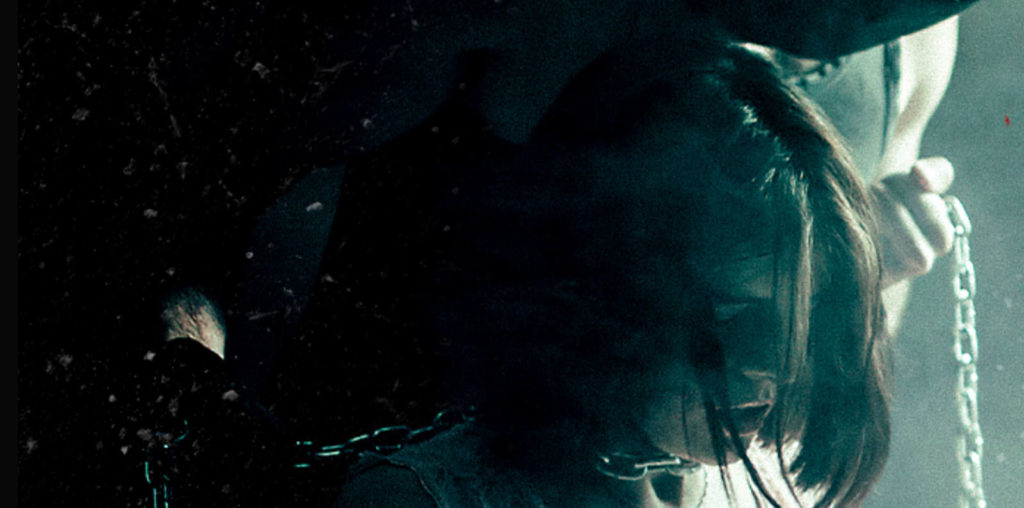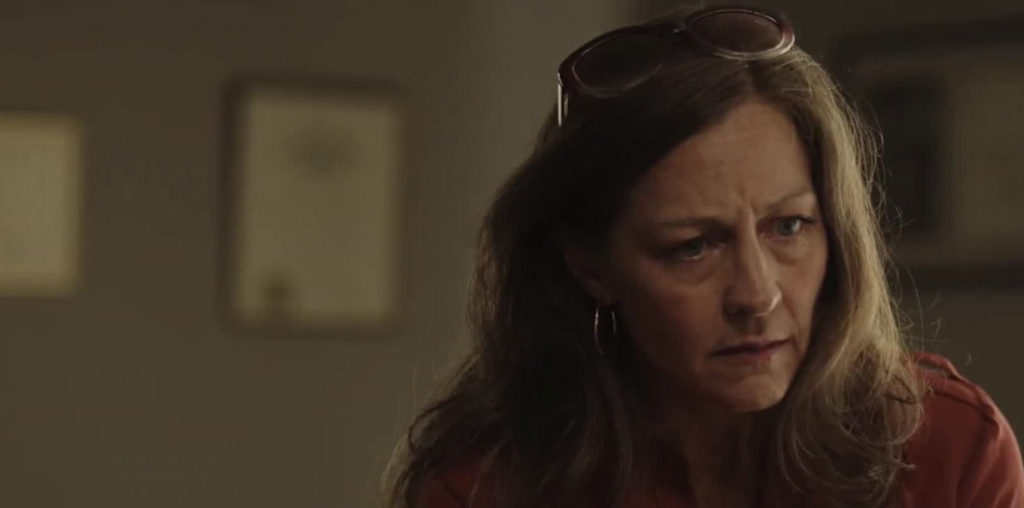
When Robert’s (John Shea) daughter Jenny (Danielle Harris) informs him that she is engaged, he does not take it well. Ranting about the horrors of failed marriages and other lost potential, his cynical attitude severely bums his daughter out. Still, for all his protestations, perhaps he doth protest too much, for when his ex-wife, Emily (Lea Thompson), comes to town, he’s all to eager to meet up with her for a drink and dinner.
Which is exactly what happens, as Emily meets with Robert at the bar where he plays piano, and the two go about bringing each other up to speed on their lives. Emily is still with Jack, the man she left Robert for, and Robert is still a somewhat starving artist, though he seems to satiate his appetite with casual sex. Conversation is lively but cordial, and time at the bar becomes time at the restaurant, as the two continue catching up.
I can’t help but wonder if Before Midnight, the third film in Richard Linklater’s trilogy starring Ethan Hawke and Julie Delpy, will play similar to how Jim Hemphill’s The Trouble with the Truth does. Because that’s the type of film we’ve got here, one where you follow two characters as they go through an evening together, talking about everything from their current love lives to what went wrong with their marriage to the definition and validity of love to chocolate. Lucky for us, John Shea and Lea Thompson are up to it.
Let’s be honest, if they didn’t do a good job… wait, no, if they didn’t do a GREAT job… then you’re just asking to be put to sleep. The witty back-and-forth can wear out its welcome early if you’re not interested in watching those having the conversation. Shea and Thompson are up against it due to the basic premise alone, so they could be somewhat forgiven for stumbling here or there. But they don’t.
Shea, in particular, carries the film. While I couldn’t give you an exact count of lines of dialogue or time spent talking, it feels like he has the majority of the words in this film, and his charm keeps you engaged as he pontificates on all manner of things. At first it seems like Thompson’s Emily is just the captive audience for his cynical bluster and braggadocio, but when it comes time for her to get her moments, she manages to own them. She may not say as much as Shea’s Robert does out loud, but she’s speaking volumes.
In the end, The Trouble with the Truth explores the aspect of marriage and divorce that doesn’t seem to get as much play: what happens after that “final” split? Are divorced couples supposed to stoically forever be distant from each other? What if feelings still linger? More importantly, forget love for a second, what if two people who spent a huge amount of intimate time together just miss each other and that comfort and familiarity? The film brings up much to talk about, but for all its conversation, it’s in the moments where things are left unsaid that it makes its most lasting mark.
This film was submitted for review through our Submission for Review system. If you have a film you’d like us to see, and we aren’t already looking into it on our own, you too can utilize this service.

